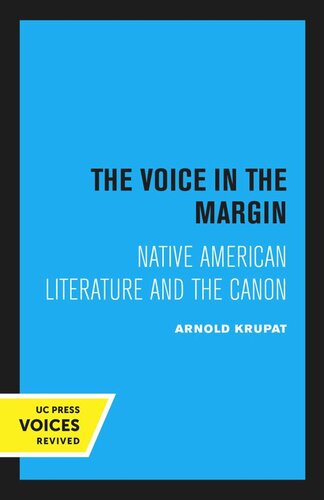

Most ebook files are in PDF format, so you can easily read them using various software such as Foxit Reader or directly on the Google Chrome browser.
Some ebook files are released by publishers in other formats such as .awz, .mobi, .epub, .fb2, etc. You may need to install specific software to read these formats on mobile/PC, such as Calibre.
Please read the tutorial at this link: https://ebookbell.com/faq
We offer FREE conversion to the popular formats you request; however, this may take some time. Therefore, right after payment, please email us, and we will try to provide the service as quickly as possible.
For some exceptional file formats or broken links (if any), please refrain from opening any disputes. Instead, email us first, and we will try to assist within a maximum of 6 hours.
EbookBell Team

0.0
0 reviewsIn its consideration of American Indian literature as a rich and exciting body of work, The Voice in the Margin invites us to broaden our notion of what a truly inclusive American literature might be, and of how it might be placed in relation to an international--a "cosmopolitan"--literary canon. The book comes at a time when the most influential national media have focused attention on the subject of the literary canon. They have made it an issue not merely of academic but of general public concern, expressing strong opinions on the subject of what the American student should or should not read as essential or core texts. Is the literary canon simply a given of tradition and history, or is it, and must it be, constantly under construction? The question remains hotly contested to the present moment. Arnold Krupat argues that the literary expression of the indigenous peoples of the United States has claims on us to more than marginal attention. Demonstrating a firm grasp of both literary history and contemporary critical theory, he situates Indian literature, traditional and modern, in a variety of contexts and categories. His extensive knowledge of the history and current theory of ethnography recommends the book to anthropologists and folklorists as well as to students and teachers of literature, both canonical and noncanonical. The materials covered, the perspectives considered, and the learning displayed all make The Voice in the Margin a major contribution to the exciting field of contemporary cultural studies.